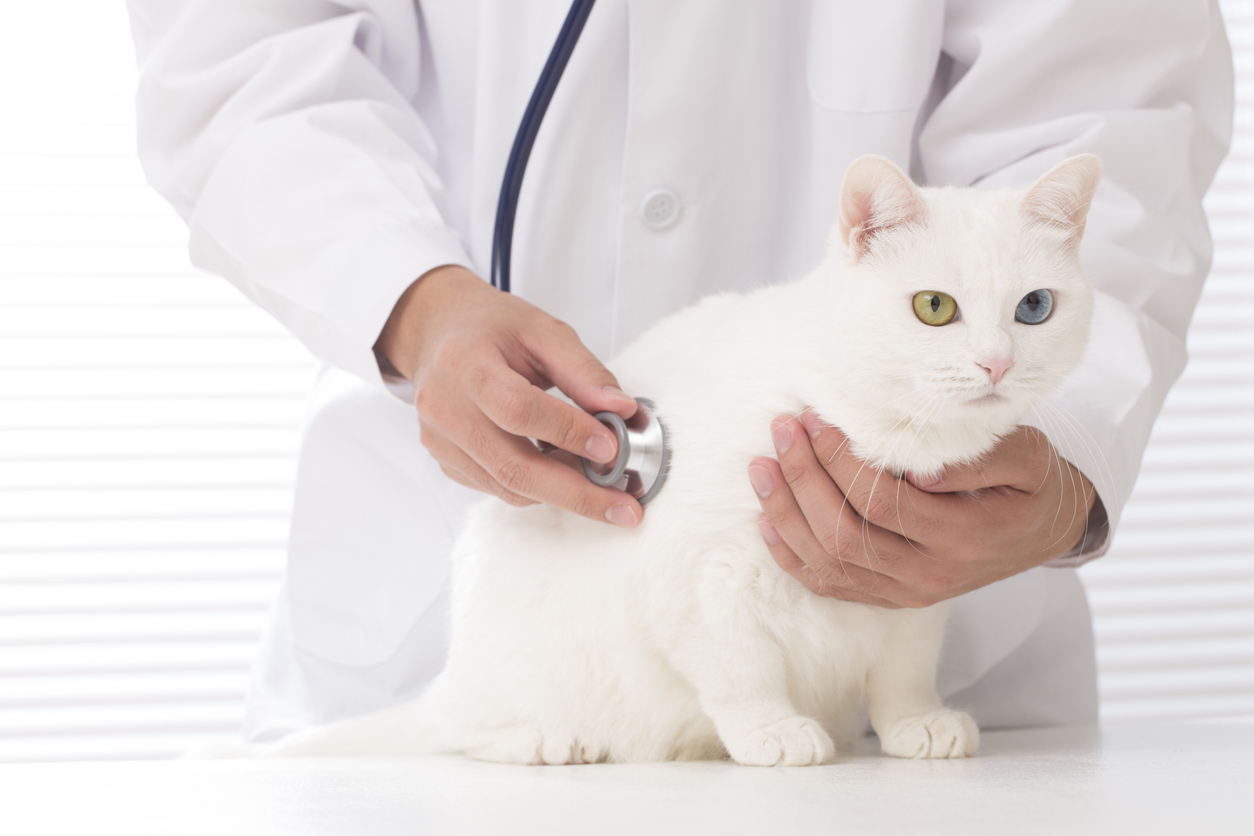Short Summarize
Selecting the right pet insurance for your dog involves evaluating factors such as coverage options, cost, and your dog’s specific needs. Assess policies for accident and illness coverage, wellness care, and any breed-specific conditions. Compare premiums, deductibles, and reimbursement rates to find a plan that fits your budget. Consider your dog’s age and health status, as some insurers have age restrictions or exclusions for pre-existing conditions. Reading customer reviews can provide insights into claim processing and customer service quality. By carefully analyzing these aspects, you can choose a policy that ensures comprehensive care for your canine companion.
- Get Free quotes from the best pet insurers
- Protect your pets from harm and yourself from unexpected vet bills
- Claim exclusive discounts and offers from top providers
It’s common knowledge: dogs and puppies getting into everything. While we should always hope that they stay out of anything dangerous, it’s always better to have peace of mind knowing that if something happens, your pet insurance will be there to cover the costs.
But how do you choose the best pet insurance for your dog? What should you even consider when researching different providers? With this guide, you will find out everything you need to know about choosing the right pet insurance plan for your dog.
How Does Dog Insurance Work?
Pet insurance works the same way as many other types of insurance. If your dog gets injured, ingests something poisonous, or any other accident happens, your pet insurance will cover it.
As many know, emergency vet visits can cost a fortune with costs soaring well over one thousand dollars quickly. But with pet insurance for your dog, you will pay a monthly premium and then will only pay a fraction of the cost of your dog needs veterinary services.
When you first choose an insurance provider, you will choose a specific policy that will charge a monthly premium. Because different policies cover different things, such as accidents or wellness visits, the monthly price will be determined by your level of coverage. Typically, the premiums will be paid monthly.
Should your dog get into an accident, you will take it to the vet, pay up to the deductible that is set by your policy, and the pet insurance will pay the difference. The entire process is as simple as making a claim, and most pet insurance companies have incredibly helpful customer service representatives that can help you through the claims process.

What Should I Look for in an Insurance Plan for Dogs?
When looking for a pet insurance policy for dogs, there are many factors you should keep in mind before deciding on the one that works best for you.
The first step in choosing insurance for your dog is to make a list of what you would like to be covered, as well as your ideal monthly premium. Once you have decided on those factors, it’s time to begin researching the different companies available in your area. Cost of the Insurance Policy.
Most pet insurance companies charge between $30 and $50 per month for a pet insurance plan for one dog. However, some policies can be as low as $10 while others are as high as $100 per month. When it comes to cost, you should determine what sort of premium will work best for your monthly budget.
It’s important to keep in mind that plans that have a lower monthly premium often have a higher deductible. So even if you pay a low monthly premium, the amount needed to reach deductible may not be worth it. That being said, it may be worth it to get a plan with a higher premium and lower deductible so that should an accident happen, your deductible is only $250 instead of $500 or $800.
- Age of Your Dog
The age of your dog is an important factor to consider when it comes to pet insurance. Oftentimes, pet insurance companies will not even cover puppies that are less than 8 weeks old. Additionally, many plans will not cover dogs that are older because there is a greater likelihood of illness or other problems.When a pet insurance company does cover a senior dog, however, the monthly premiums are often high and they may not cover as many health issues as they normally would for a younger dog. So before you pay high monthly premiums for an older dog, call the insurance company and see what their options are for senior dogs and see if it is worth it for your pet. - Your Dog’s Health
Your dog’s health is another factor that you should consider before getting pet insurance. If your dog has a chronic illness, for example, you may need to purchase a specialized plan. Otherwise, you may run into the problem of not being covered by the pet insurance that you pay for monthly.However, some companies will offer specialized plans for dogs with chronic illnesses. If that is the case, you can opt to choose this plan. Keep in mind that the monthly premiums or deductibles may be higher than that of other plans. - What Your Policy Will Cover
Different policies will cover different things. While most pet insurance providers will cover accidents and illness, some companies offer a wellness plan that will cover all costs of routine vet visits. In addition, some pet insurance providers will cover the costs of pet dental work and more advanced pet treatments, such as cancer and diabetes.However, the more aspects that your policy covers, the more expensive the monthly premiums will be. If you can afford the higher monthly premium for advanced coverage, then the cost may be worth it. But if you need to stick to a monthly budget, you may want to stick to more basic options for pet insurance. - Where You Can Take Your Dog for Care
unfortunately, not all pet insurance companies will cover every veterinary office. In fact, some will only work with specific providers. Depending on where you live, this can be quite inconvenient if you need emergency care.When searching for a pet insurance provider, make sure you look for a policy that allows you to visit any pet care provider in your area. If you find a policy that allows this, you will feel much less stressed when you need to get your dog in for an accident or severe illness.
Is Pet Insurance Worth it for a Dog?
Because dogs – especially puppies – get into everything, pet insurance is absolutely worth it for a dog owner. Nearly every dog owner can attest to the fact that dogs will eat anything, and sometimes that substance can be deadly or cause intestinal problems that require surgery. Additionally, many dogs can become injured when they are playing or exploring the outdoors.
When these accidents happen, vet bills can be incredibly costly. Even if you do have plenty of savings in your bank account, spending one thousand dollars on vet care does not sound appealing. So instead of draining your bank account, find a pet insurance policy that will pay for most of the vet care.
Additionally, some pet insurance policies will cover wellness or chronic illness. So if your pet requires regular visits to the vet for check-ups as it gets older, pet insurance can cover most of the cost.
What is the Best Pet Insurance Plan for Dogs?
There are many different pet insurance policies and plans available for dog owners, but not all of them are as competitive as the ones listed below. Here are a few of our favorite pet insurance carriers.
- Lemonade
Lemonade is one of the leading companies when it comes to pet insurance. Not only do they have 4.9 stars on Apple’s App Store and Google Play, but numerous happy customers have left stellar reviews. Lemonade offers many different options for pet insurance and is one of the most customizable providers in the business.
Covering diagnostics, blood tests, x-rays, ultrasounds, emergency care, surgery, hospitalization, medication, unexpected accidents, and numerous illnesses, Lemonade is a great option for pet insurance for your dog. Additionally, Lemonade can offer great discounts on wellness exams, heart worm tests, fecal tests, annual bloodwork, vaccines, and more.
- Spot Pet
Spot Pet insurance plans are another leading brand in the industry. With Spot Pet, up to 90% of qualifying vet bills will be reimbursed. Costing less than a cup of coffee each day, Spot Pet will cover thousands of dollars worth of vet visits due to accidents, injuries, chronic conditions, illness, and more.
One perk of Spot Pet is that they will cover a visit to any licensed vet, emergency clinic, or veterinary specialist. So regardless of where you take your pet should an accident happen, Spot Pet will have you covered.
- Pawp Pet
Starting at only $19/month, Pawp Pet is one of the most inexpensive pet insurance providers on the market. Not only does Pawp Pet offer a $3,000 emergence emergency protection fund for their clients, but they also offer are a digital clinic for pets. So if you need to visit a vet for any reason, you can call a Pawp Pet veterinarian and get vet services instantly.
While on video chat with a licensed veterinarian, you can get treatment for eating irregularities, stomach problems, rashes, sores, injuries, accidents, and even get a consult for behavior issues. With Pawp Pet, you will have a 24/7 on call vet to answer your questions and examine your pet.
- Pumpkin
Pumpkin pet insurance provides excellent pet insurance for your dog. Over the course of a dog’s life, dog owners can expect to spend about $16,600 on vet care, not including food or recreation. But with Pumpkin, pet owners can rest easy knowing they are covered should their dog get sick or injured.
Not only does Pumpkin offer plans that will cover emergency care, but they will also help cover the costs of surgery and rehab after a diagnosis has been given. Plus, pet parents can opt for wellness coverage to help with the costs of vaccines and preventative care.
- ASPCA Pet Health Insurance
As one of the most customizable dog insurance plans, ASPCA pet insurance understands that not all plans will suit all pets. With ASPCA, dog owners can take their dog to any vet specialist, vet care facility, and emergency clinic. Further, ASPCA has a very easy claims process because all pet owners have to do is go online or use their free app to submit their claims.
With their Complete Coverage plan, your dog will be covered if they are sick or injured. Additionally, this plan will cover hip dysplasia and eye disorders, alternative therapy such as hydrotherapy, acupuncture, and stem cell treatments, and will cover behavioral problems such as fur pulling, destructive chewing, and barking.
Final Words
As a responsible pet owner, you want to do everything you can to make sure your dog is safe and taken care of if an accident happens. With pet insurance for your dog, you can have invaluable peace of mind knowing that you will be covered in case of emergency.
Once you have reviewed some of the best options for pet insurance above, make sure you check out our full editor’s reviews of the different insurance companies to learn more about the best pet insurance options for your dog.

Pet Insurance 101: Selecting Coverage

How Pet Insurance Works?

How to Choose the Best Pet Insurance for Your Dog

How We Rate
FAQ
-
How to reduce the cost of pet insurance?Many pet owners want to find the most affordable pet insurance plan possible, while still getting the coverage they need. There are several ways in which you can cut down on the cost of your premium. One of the easiest ways is to choose the highest possible deductible when signing up for your plan, as this will reduce its overall cost. If you set the annual limit and reimbursement rates lower, the premium will also get cheaper. A lot of leading pet insurance providers may also offer discounts for multiple pets or loyal customers, and some even run programs where you can save money by looking after your pet better and taking it for regular check-ups.
-
What do I need to run a pet insurance quote?Getting a pet insurance quote from a leading provider like Hartville, Spot, or the ASPCA is very simple. The process can vary depending on which site you use and which provider you're working with, but usually, all you'll need to fill out the forms is the name of your pet, its species, breed, age, and perhaps size or weight as well. You'll also need to enter some contact information so that the quoted plans can be emailed over to you. After providing the necessary info, you should be greeted with a screen showing you your quoted premium, and you can usually make adjustments to things like deductibles, reimbursement rates, and annual limits in order to modify the details and cost of your plan.
-
Is Pet Insurance Worth It?When you realize that routine veterinary care can cost several hundred dollars and urgent treatment or surgery can cost thousands, it's clear to see that pet insurance can save you a lot of money in the long run. We all hope that our pets will stay happy and healthy for years to come, and it's easy to overlook the importance of pet insurance when your dog or cat is young and full of life. However, as animals get older, the risks of various health conditions, disorders, and diseases begin to rise, and many pets can be affected by all kinds of physical issues as they get older. Pet insurance can provide much-needed peace of mind to any pet owner, as well as potentially saving your pet's life someday.
-
Is Pet Insurance Tax-Deductible?There are some ways in which you might be able to claim tax deductions on your pet insurance or simply the general costs of owning your pet, but the circumstances for this can be quite specific, so you need to do your research and speak with experts to learn more. If you require a pet for medical reasons, for example, like a guide dog for a visually impaired person or a therapy dog, you might be able to make a claim. You might also be able to obtain a deduction if you use a guard dog at your business or you happen to be a professional animal breeder. In and of itself, insurance isn't usually deductible for most pet owners, but it's a possibility in some of these aforementioned special cases.
-
What are the Price Factors on pet insurance?
- Location – Your location will affect the price of your pet insurance, as pets living in densely populated cities are generally be seen to be at a higher risk of injury than those living out in rural locations.
- Pets age – The age of your pet can have a huge bearing on the cost of your pet insurance too, as older animals are more likely to develop health issues and therefore will be more expensive to cover.
- Pet's breed – The breed of your pet can also be a key factor in determining the total cost of your insurance. Certain breeds, especially big dogs, are more at risk of health issues and have shorter lifespans, leading to higher premiums.
- Selected deductible/reimbursement level – If you choose a higher deductible, meaning you'll be paying a larger amount each time you make a claim, you'll get a lower premium. Similarly, if you choose a lower reimbursement level, your premium will be cheaper, and vice versa.





